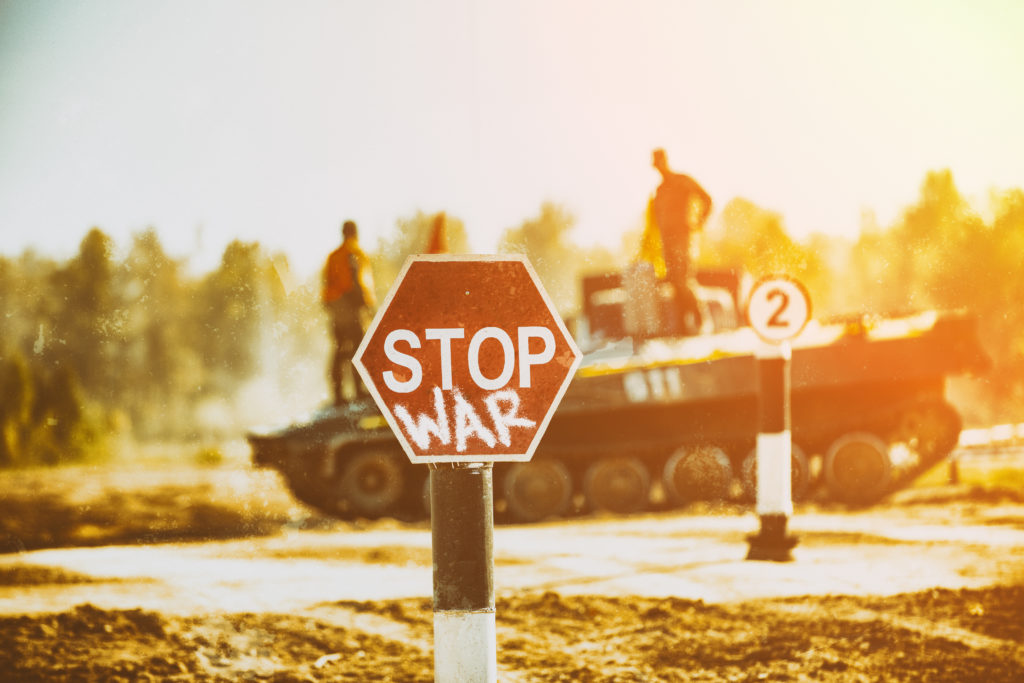by Anne Hewitt

If we admire democracy, a government that aims at the common good, that responds to the needs and interests of the people, that is chosen by the majority but also protects minority views, we might ask ourselves: is democracy so important that we should support and defend it by any means? More specifically, is it permissible to use violence in order to bring about and secure a peaceful democratic state?
For some, the answer to this question is an unequivocal, yes. The road to democracy, they claim, may well call upon us to use tactics that are decidedly undemocratic. In certain cases, these supporters continue, we must turn a blind eye to the use of violence and oppression even if such means conflict with deeply held principles we have — after all, isn’t democracy worth such momentary lapses?
Professor Nagler looks at American involvement in Iraq as a clear example of this belief put into action. It is now abundantly clear what the American war in Iraq wrought, and it is not the democracy that was our professed end. Rather, hundreds of thousands of deaths, millions displaced, destruction of infrastructure and an administration so indifferent to the needs of Iraqi citizens that it was forced to step down last fall — in response to nonviolent protests! While the October Revolution in Iraq has been thwarted in many ways; first by brutal repression from the government and armed militias, then by COVID, the movement that was initiated by nonviolent protestors in 2019 has succeeded in bringing about dramatic change to Iraq’s social landscape: women have been empowered, working-class people have made their voices heard, and diverse groups have come together, united to call for their rights in hopes of building a democracy from the ground up.
Given this example — and many more in history — it is worth considering whether it in fact makes sense to separate means and ends. We might instead see the two as inextricably connected. After all, ‘ends’ have blurry edges, there are always ripples that flow from them, rendering each end in turn a means to other, often unintended further ends. Every action we take is therefore an end in itself.
When we act violently in order to defend or promote democracy, we are weakening the very foundation of the reality we wish to bring about. Democracy is not static, rather it is an ongoing process which we are always improving, tweaking and perfecting. Sustaining a dynamic and peaceful democracy is best achieved through a commitment to nonviolence that ‘goes all the way down’ that is, through deeply held convictions which consistently lead to actions reflecting them — in short, through principled nonviolence as opposed to strategic nonviolence.
As we look at the state of the American democracy today — polarized, marred by fear and anger — the threat of violence looms. It is now more urgent than ever that we rely upon principled nonviolence. As we move through this next week and those that follow the election, we’d do well to remember Gandhi’s words if we feel inclined to lash out: “Means are ends in the making.”








